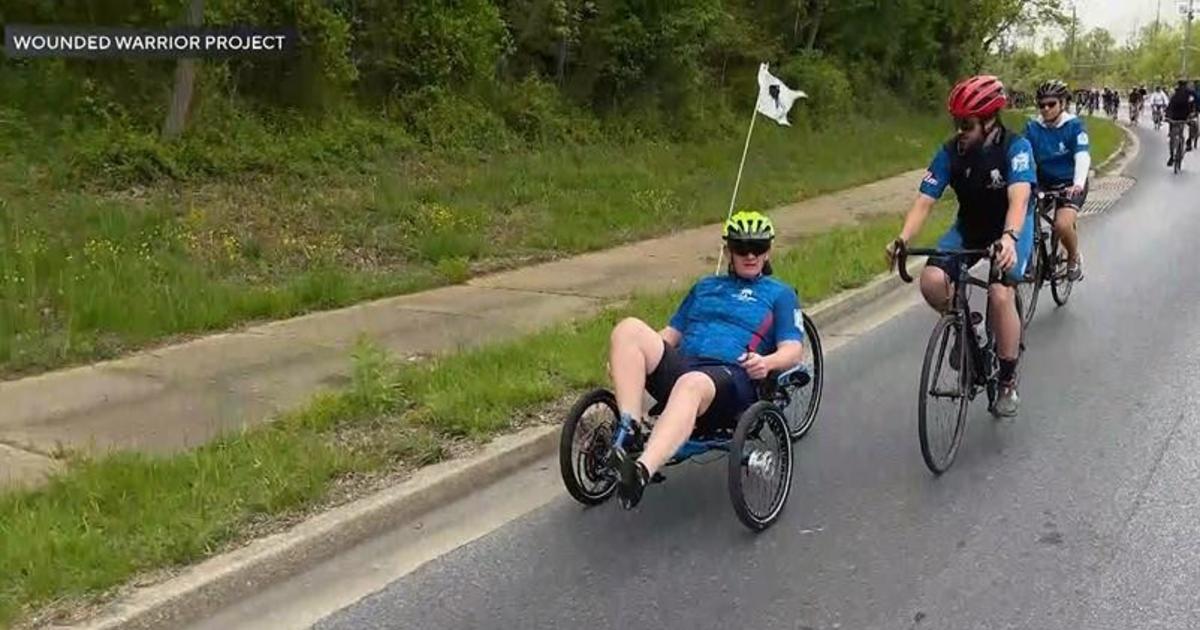Runner Does Race 9 Months After Liver Transplant
By STAN GOLDBERG
The Frederick News-Post
FREDERICK, Md. (AP) -- Less than nine months after receiving a liver transplant, John Kippen finished the JFK 50 Mile.
He did it recently in 13 hours, 13 minutes, 14 seconds, his slowest time ever and far off his 11 hours, 32 minutes finish time last year or his best time of 9 hours, 59 minutes.
But the 60-year-old Frederick man managed to accomplish the goal he set for himself when he found out he had liver cancer last year: to become the first man with a liver transplant to finish the JFK.
"He wanted to show he was back to his old self, he was back to normal, that he didn't lose a lot by having a liver transplant," said his wife, Barbara Kippen.
John Kippen said finishing the JFK this year is his greatest accomplishment, even greater than twice qualifying for the Boston Marathon.
"Overall it was harder this time because I wasn't in as a good shape as I was in previous years," said Kippen, who finished eight previous JFKs. "I was pretty whipped at the finish."
Even so, he still managed to go to the gymnasium at Springfield Middle School in Williamsport, where the race ended, and have a slice of pizza. He said it was very tough climbing into the bleachers to eat, but very relaxing when he did finally sit down.
Dr. Jacqueline Laurin, his transplant physician, was impressed, but not totally surprised that he finished.
"Knowing this individual, I think it was just him. He knows his body," she said. "It was fantastic (for him to finish) after such a major operation."
Kippen, who had a liver transplant on Feb. 27, had to do the race a lot differently this year than for previous JFKs. Typically, he runs about 80 percent of the course and walks 20 percent. This year it was about 65 percent running and 35 percent walking. He also spent more time at the aid stations and made sure he drank plenty of fluids. Because of the anti-rejection drugs he takes, Kippen's immune system is compromised, and it is important he not get sick. His doctors cautioned him to not get dehydrated.
"I just ate more, had a lot of cups of chicken noodle soup," he said.
He also ran more with other people, and for the first time took his cell phone so his wife and his friends could stay in contact with him. He had hoped to finish the JFK in 12 to 13 hours, but it took a little longer.
He was more cautious running on the Appalachian Trial, the first 15.5 miles of the event. Runners have been known to slip on leaves or trip over rocks on this section.
"I certainly was playing it much safer on the trail, I didn't want to do anything stupid," Kippen said.
It took him about four hours to finish the AT section, about a half-hour more than he planned. Then he headed over to the C&O Canal towpath, the next section of the run.
Participants have to reach certain points of the course by specific times to be allowed to continue. He made Dam 4 (41.8
miles) with just three minutes to spare.
"I had to run more than I hoped then," he said. Kippen, one of a small group that started at 5 a.m., had to finish the race in 14 hours, and he easily did that. He was the 830th out of 864 finishers.
It was dark when he crossed the finish line -- and his wife and several friends were there to greet him.
Marathon recovery
He was diagnosed with liver cancer in July 2010, and was told he would need a liver transplant. He began getting chemotherapy treatments at the time. But Kippen, who has been running marathons since 1999, continued to run as much as he could.
He was able to finish the JFK in 2010 and immediately began thinking about running it in 2011, but with a new liver.
He knew for that to happen he would need to have the transplant early in the year. That became a reality when a donor liver became available in late February. He had the surgery at Georgetown University Hospital.
He was in the hospital for four days. While there he walked laps in the hallways.
When he returned home, he was told he couldn't run for six weeks. So he walked, 35 to 40 miles a week. Then he began to run.
"I was shocked by how little I could do," he said. "I had trouble with a tenth of a mile." He also was taking beta blockers,
which suppress the heart rate and prevented him from running fast.
By mid-July he was running 10 to 12 miles without stopping. By August he was up to 20.
"He was very careful. He knows himself," Dr. Laurin said. His next goal was to finish the Oct. 1 Freedom's Run Marathon,
which starts in Harpers Ferry, W.Va. "That was going to tell me if I could do the JFK," he said.
He finished Freedom's Run in a little more than five hours, about an hour slower than his normal marathon time. Completing that marathon told him he could do the JFK.
But then he caught the flu. There was a concern he wouldn't be well enough to run in the JFK. Because the medicines he is taking compromise his immune system, his recovery time from an illness is slower. His wife was especially concerned and tried to talk him out of the running the JFK.
"The hardest thing was that I was putting her through a lot of stress," he said. Eventually she came around.
Within a week and a half he was over the flu. On Nov. 12 he took part in a half marathon and felt fine afterward. The media center at Georgetown Hospital plans on running a story on Kippen. This was not his last JFK. Next year will be the 50th anniversary of the event and he hopes to run in that.
"But I expect that to be my last one," he said.
(Copyright 2011 by The Associated Press. All Rights Reserved.)



